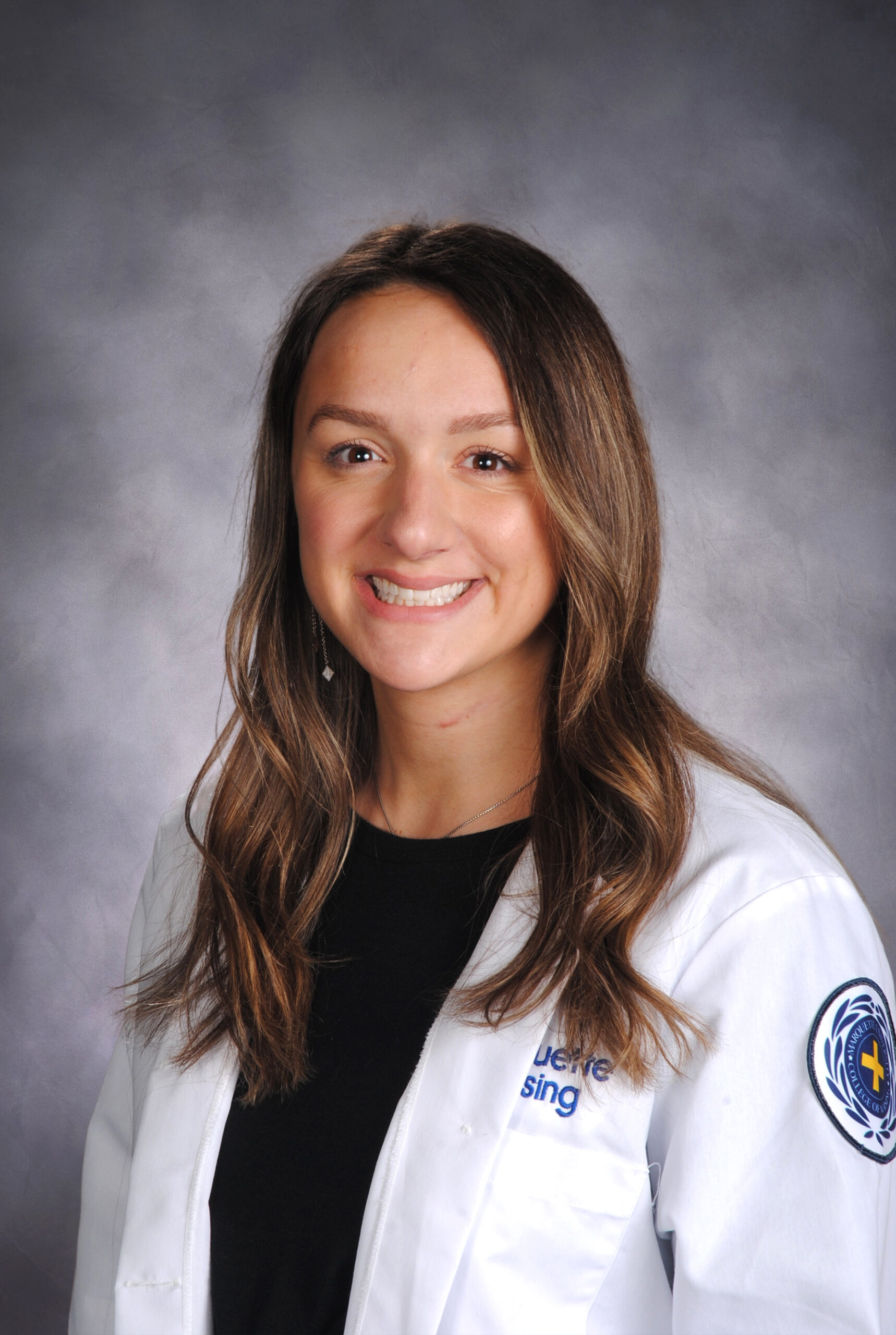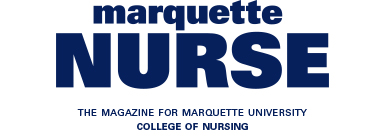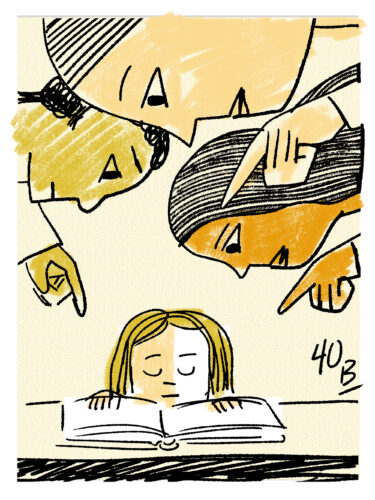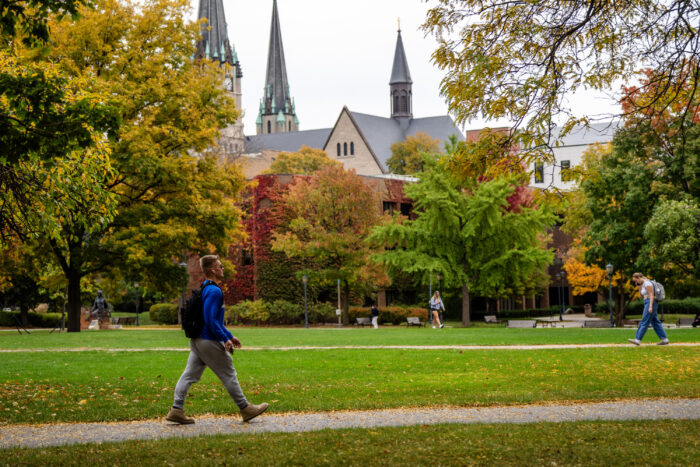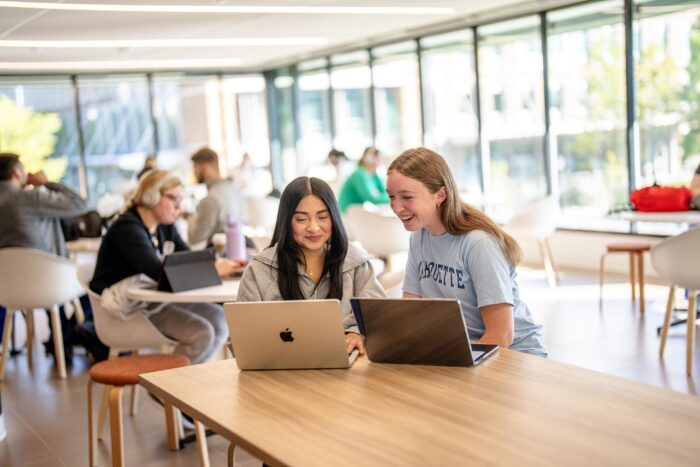After a life-changing injury, a resilient nursing student aims to give others the same extraordinary care she received.
By Claire Nowak, Comm ’16

Nursing student Annie Bruce recently finished a 2-mile run. It may not seem a long distance to some, but it’s a notable milestone — considering that a year earlier, she couldn’t even walk.
On Dec. 18, 2020, while she was home in Michigan for Christmas break, Bruce fainted at a friend’s house. As she fell, she hit her head on a wall, breaking her neck and bruising her spinal cord. She was immediately paralyzed from the neck down.
She was rushed to the hospital and into surgery. When she woke up, she couldn’t move the right side of her body, and her left side had limited mobility.
Doctors were not optimistic about her prognosis. Her neurosurgeon believed she would only be able to move enough to do daily activities like going to the bathroom. Relying on a walker seemed like a near certainty. As she began her recovery, Bruce was faced with a choice.

“Either you work as hard as you can, or you stay paralyzed,” she says. “When those are your only two options, you have to do the work.”
Over the next several months, Bruce went through extensive physical and occupational therapy at three different hospitals, taking a leave of absence from Marquette to focus on her recovery. At one point, she spent six hours a day in therapy, five days a week. That included relearning tasks that were once second nature, such as tying her shoes, writing and even showering. By summer 2021, she had made remarkable progress, walking without a cane and starting to run. “I look back on it now, and I have no idea how I did that,” she says.
The experience changed Bruce emotionally as much as physically. Instead of worrying about what could happen in the future, she strives to live in the moment. It also reinforced her decision to choose nursing as a career, especially since she can offer unique empathy to her patients.

Growing up in a family with many nurses, she knew she wanted to work in the medical field, but her recovery gave her firsthand experience of the support nurses provide their patients. One intensive care unit nurse, in particular, inspired her to work in that specialty postgraduation. After Bruce’s surgery, this ICU nurse saw that she was upset and told her, “I know you can do this. I know what it’s like to be in this bed, but you can do this.” It was a powerful moment for Bruce. “I don’t remember a lot from that day, but I remember her,” she says.
When Bruce returned to campus this past fall, she was met with overwhelming support. Friends who had sent cards and texts with well wishes were happy to see her back on campus. Faculty helped rearrange her class schedule and provided her with resources and accommodations to ensure she can graduate in fall 2022, rather than needing an additional year of schooling. Bruce notes that because she doesn’t look like someone with a spinal cord injury, it can be hard for others to understand that she’s still recovering. However, the experience has given her a new sense of compassion for others with private struggles: “You never really know what someone’s going through until you talk to them.”
